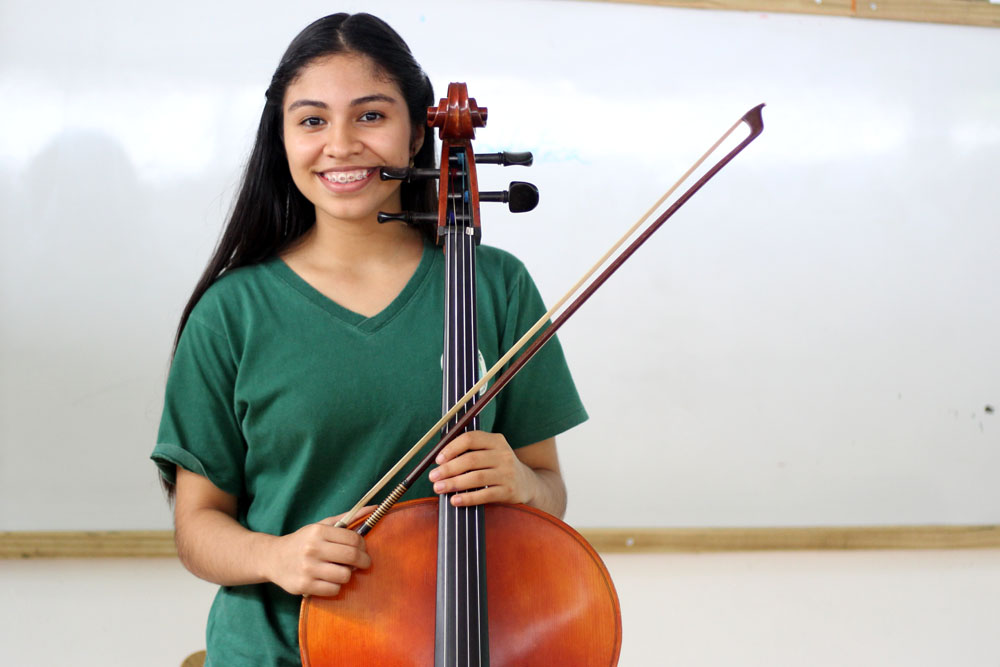
by Ariadna Lopez Vargas | Jul 2, 2018

“Music is a universal language and it is always connecting us” by Anonymous
For me, as a student and young person, participating in the Huntsville Alabama Music Camp was a totally enriching experience in every way, not only because of the technical learning that it provided to me, but also because of the opportunity to expand my mind getting to know the culture, the place and the exceptional good reception that these people gave me.
The camp lasted about a week, however, my stay was 13 days and it was as Miss Susan says… “every day I learn something new”. I learned a lot every day I spent there. The camp was held in Huntsville Alabama, in a Methodist church that was spacious enough to house rehearsals, master classes and workshops of more than 8 different orchestras. The organization was always very professional and the directors, composers, instrumentalists and teachers worked in a strictly professional and committed way which allowed us to have very good results at the end of the camp.
The second week was much quieter and we spent it in Nashville, Tennessee, where we were with another family that was just as friendly and hospitable as the family that awarded us a place to stay in Huntsville. In Nashville we visited downtown, museums, and other touristic places which were very fun and enjoyable. In summary, it was a very nice experience.
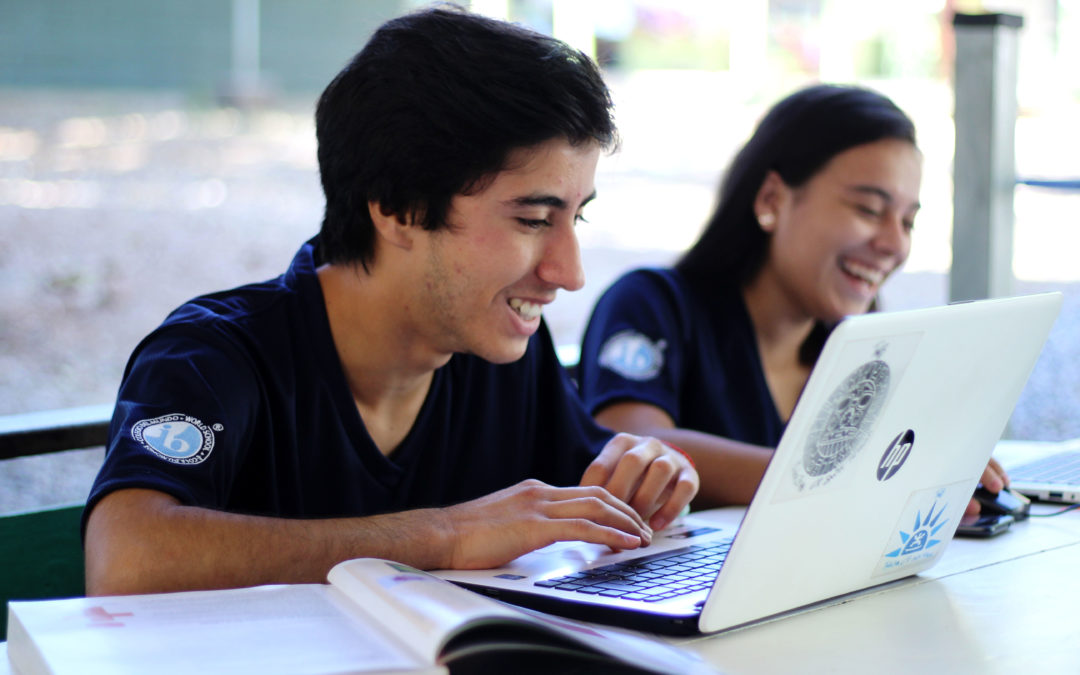
by Lural Ramirez | Jun 21, 2018

In 2018, Futuro Verde began requiring our IB diploma students to have a personal laptop for use in classes daily. The implementation of the laptop requirement has been a success and our first generation of IB students now research regularly using their personal laptop and the school subscription to EBSCO research databases. Students also use their laptops to access the applications available to us as a Google For Education school, like Classroom, among others. In Classroom, students have a digital connection to all of their in person subject matter and teachers regularly use Classroom for projects, announcements, homework assignments and as a communication tool. Finally, the need to have a laptop for word processing projects throughout the school day, and from any location, across our school campus make having a personal laptop a huge convenience for our students.
Starting in 2019, Futuro Verde will require that all 9th through 12th grade students have a personal laptop, extending our current requirement down from only the 11th and 12th grade diploma program grades and into our full High School. Students in 7th and 8th grade are encouraged to own a laptop, but not yet required to do so.
For parents with students going into 9th through 11th grade in 2019 and for any new families into 12th grade, we remind you of the suggested laptop specifications already shared with our current 11th grade families when they purchased their child’s laptop. As you make this investment for your child, please follow the below recommendations. Thank you for assuring your child has the tools necessary to be a successful High School student at Futuro Verde!
Laptop minimum requirements:
- i3 processor
- 4GB RAM
- Mac or PC, 2013 or newer
- Windows 7, 8 or 10 or Ubuntu o MacOSX 10 or higher
- WIFI capabilities
- A Chromebook, though acceptable, is not recommended due to its software limitations
- A tablet with an external keyboard, though acceptable, is not recommended
- A smart phone is NOT an acceptable substitution for the laptop requirement
If you have any questions or concerns regarding the student laptop requirement, please don’t hesitate to contact me for an individual appointment time to discuss your concerns. Thank you, again, for your support and commitment to your child’s learning!
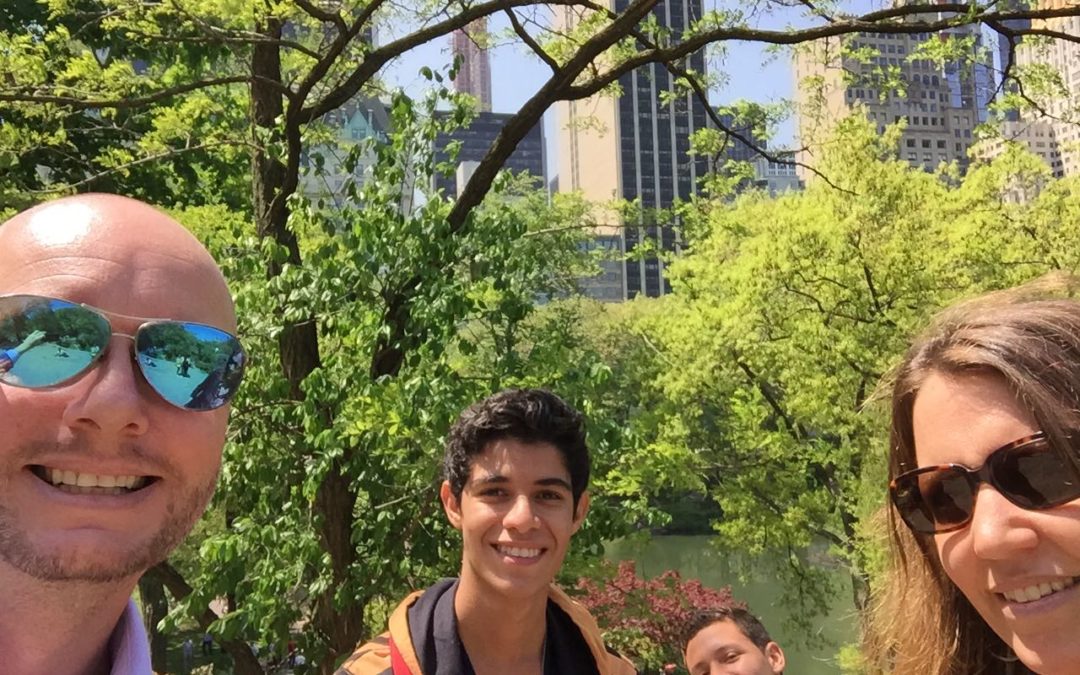
by Elian Gonzalez | May 24, 2018
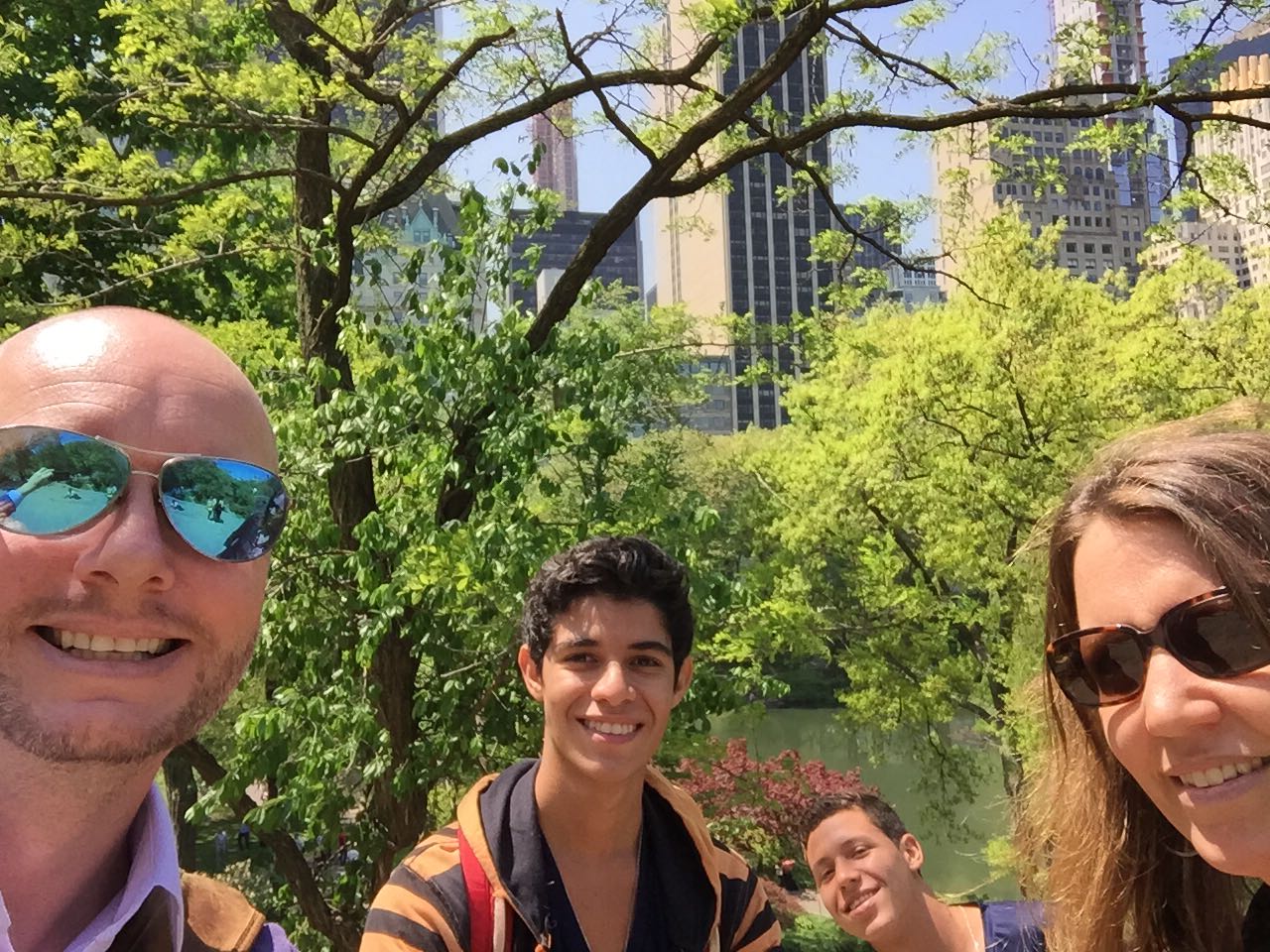
Before getting to the States I had imagined it as a totally different place than that I experienced. I thought it would feel like a different world, but it did not. When we came out of the airport I was thinking only one thing, “How come it still feels like the same world?”. I was expecting to feel a rush of excitement as soon as I arrived but it wasn’t happening (I guess the only way to feel out of this world is going to outer space). New York wasn’t exactly what I had imagined, the buildings weren’t that impressive and there were trees! However; that is not a surprise since I was in New Jersey. I hadn’t realized that yet.
Throughout the whole trip, I was amazed by how many immigrants there were. Everywhere, in shops, the streets, restaurants, New Jersey or New York, there were so many immigrants, so many that it doesn’t feel so much like the USA but a place that belonged to nowhere, no one. As opposed to Costa Rica where one would only see diversity in tourist areas, there you would see people from all over the world as you walk down the streets.
Oh, and by the way, it is not walk down the streets but rather run down the streets. As Costa Ricans, I think Mateo and I could really feel how New Yorkers are always in a rush. Costa Ricans move slow. It is a generalization, but myths always have a little bit of truth. We all know about ‘Tico time’, we don’t have the culture of always being punctual, whereas, Americans are very punctual, and in the streets of New York you have to rush if you want to get somewhere on time. Everything is so much faster, one would rush through the overwhelming amount of people who are also in a rush, stopping a moment to tie your shoes could be a terrible decision since it takes just a few seconds to lose sight of someone in the Big Apple.
In life we need new experiences, something to keep us going. We need new things to stay excited about what is coming next. However, if too many new experiences come over and over, non-stop, we lose our ability to be amazed. The latter is the case for lots of people in and around Manhattan. From a guy walking around with a lizard on his shoulder to a model filming an ad in the streets; the most crazy scenarios you could imagine didn’t even make locals look twice.
Manhattan has so many people from all over that one could stay there for months without being able to see all of its culture. Manhattan is full of things to see and you don’t have to go any further than the street to see them.
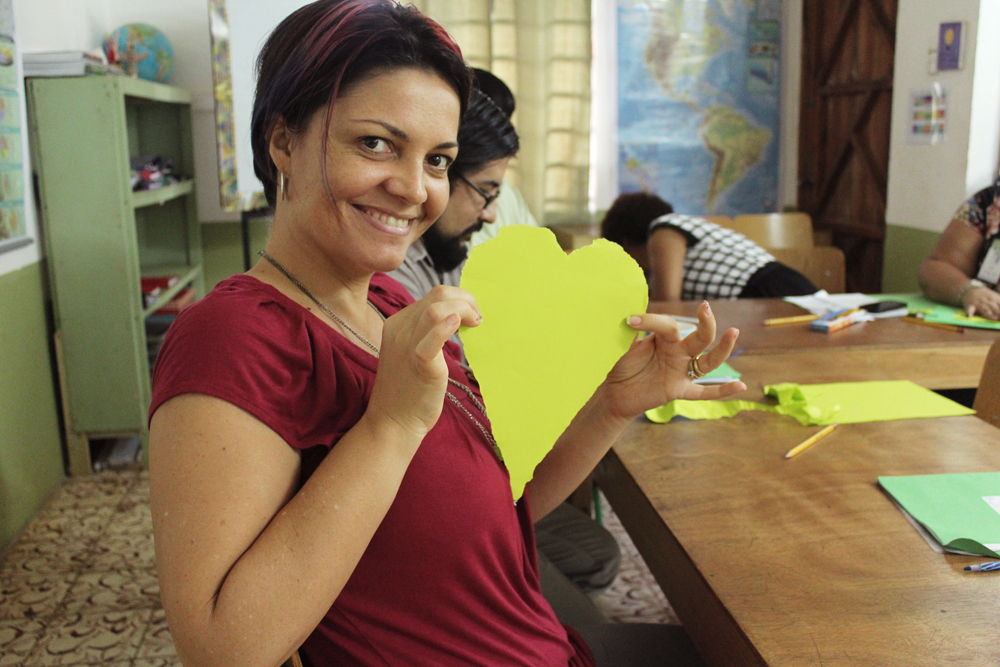
by Lural Ramirez | May 24, 2018

Futuro Verde’s annual education conference, focused on Bilingual, Holistic and Sustainable education. is designed to attract educators from around the country and the globe. But, did you know that most BHS sessions are targeted for parents as well? Parents who have attended BHS in years past have raved about the learning they’ve experienced and have appreciated the perspective it gives them on their child’s educational journey.
What can parents learn from BHS this year? Conference sessions are divided into three strands: Bilingual education, Holistic education and Sustainable education. Below is a highlighted list of some sessions coming to this year’s conference:
- Global Mindsets for a Sustainable World
- Community Blue Flag Green Certification: A Case Study
- Connecting Music with Poetry
- Childhood Nutrition
- The Perfect Balance between Work and Play
- Bilingual Reading Ability from a Young Age: Benefits and Advantages
- Experiential Education- Solving Real World Problems in the Classroom
- Permaculture
- Play and Inquiry Based Learning / Reggio Emilia Approach
- Comparative Language Study: a universal tool for interculturality and multilingualism
- Assessment Through Interaction and Games
- Mindfulness as a Tool for Emotional Resiliency
As you can see, BHS offers topics for every area of interest and expertise! We encourage you to register today to attend this life-changing educational conference in our own backyard. For registration details, click on the link: https://www.futuro-verde.org/professional-development/
See you at BHS 2018!
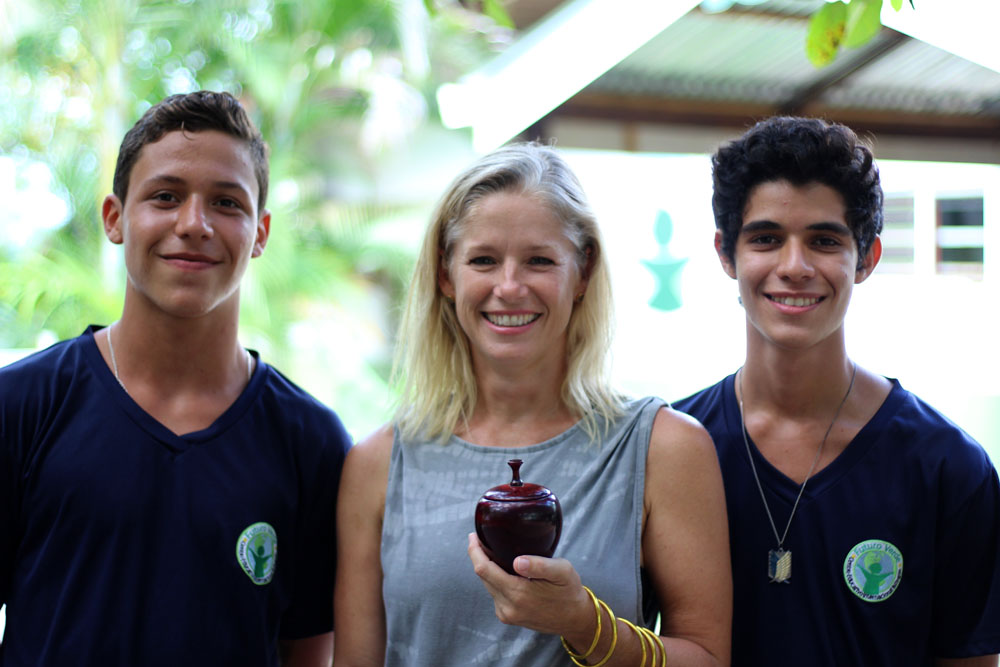
by Melissa Kovics | May 2, 2018

Big Apple here we come! We are only days away from an exciting Futuro Verde fundraising event in New York!
On May 7th we will proudly host the Futuro Verde Benefit reception at the prestigious CORE: club in New York City. The fundraiser will benefit our Capital Campaign and Student Scholarship program.
I will be accompanied by several parents, board members and staff. Two of our amazing scholarship students, Elian and Mateo, will also be speaking at the event. We are so proud of their bravery and enthusiasm to make this journey far from home.
We’ve lined up a distinguished guest list of potential donors, great food and a live auction. We look forward to a successful event and our hope is to continue these fundraisers annually.
Thanks so much to all the parent volunteers who have helped make this event happen! We wouldn’t have been able to do it without you all! The Futuro Verde community is a special group. Thanks for all the support.
Pura Vida!
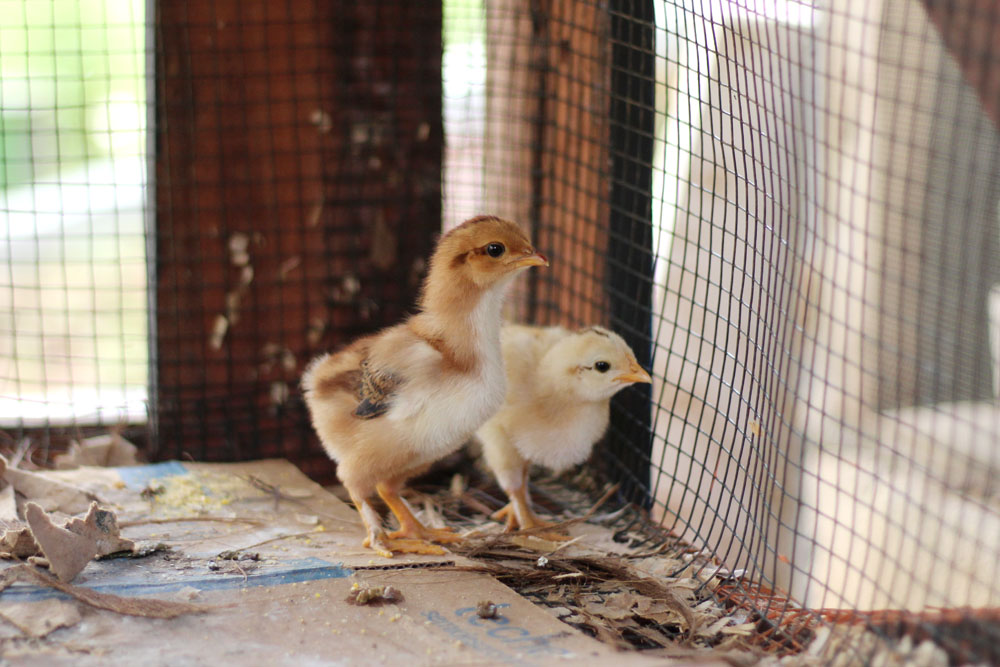
by Katie Chiaverini | Apr 28, 2018

Living things grow and change. Futuro Verde first and second graders are seeing that first-hand through our new addition…the chickens. We started out with just two hens in hopes that we could see the whole life cycle over time. Now, with support of Futuro Verde staff, the environmental education program, and high school students, we have been able to create a larger, safer area for more chickens. The first and second graders get to visit the ten chickens, a mix of ages and types, including a rooster, and two little chicks several times a week.
According to Mark Ritchie, Ph.D., the Executive Director of the International Development Studies Institute, ¨Experiential learning — learning by doing with reflection — presents the educator with a tool that can both engage the learner with complicated material, and help illustrate the complexity of real world ecological and human systems.¨ This is exactly what I am seeing in our students – engagement paired with learning complicated science standards! Usually, the first question of the day is “when do we get to see the chickens?!”
The students are responsible for providing fresh water, leftover food from the kitchen, and cracked corn for the chickens. We are learning what items they like best through observation. The students are also learning how to safely handle the chickens by staying calm and waiting for the chickens to approach them – patience is often a difficult feat for such young children but they are succeeding! Through observation and reflection, we are looking at body parts and their functions, patterns of behavior, inheritance of traits, the stages of development within the life cycle and applying critical thinking skills. These are complicated topics for six to eight-year-olds, but when using the basic steps of experiential learning: Act, Reflect, Reframe and Apply, the students are able to grasp these concepts and problem solve any issues that might arise with the chickens. Beyond the science standards, the language development that comes from this hands-on experience is amazing – vocabulary development which begins orally in the interactions with the chickens to written application in their journal reflections.
If you run into a Futuro Verde first or second grade student, ask about the chickens…I am sure they will have a lot to talk about!











